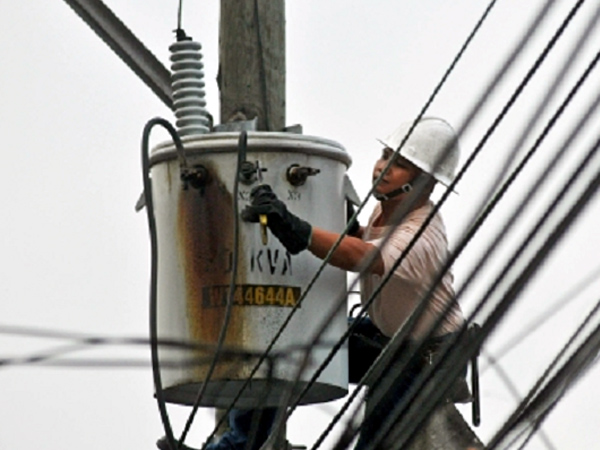ICSC sees power supply shortage on election period
MANILA, Philippines – A climate and energy policy group fears that an electric power supply shortfall may grip the Luzon grid, particularly during the weeks leading up to and immediately after the coming elections in May which may cast doubts in the election results.
Based on the Institute of Climate and Sustainable Cities’ (ICSC) report entitled “Luzon Power Outlook: Determining the Adequacy of Power Supply for April to June 2022,” there could be possible blackouts over the Luzon grid in the second quarter as the ICSC anticipates a deficit of 1,335 megawatts in the country’s electricity supply.
The projection is based on historical trends and the country’s current power reserve issues, as well as additional reports published by the Department of Energy and the National Grid Corp. of the Philippines.
“Unreliable electricity supply would undermine the credibility of the elections,” said Pedro Maniego, Jr., ICSC senior policy advisor. ”
We need our electrical power system to provide reliable supply especially during election day and while transmitting data; otherwise our political power system might fail if the results are not accepted by our people.”
Article continues after this advertisementWhile the NGCP’s power outlook for May showed a margin of 1,200 MW of operating reserves before the Luzon grid goes into red alert status which signals the possibility of brownouts, ICSC said coal power plants that DOE said would supplement the energy supply from traditional generators may not be able to operate fully in the crucial months ahead.
Article continues after this advertisementAboitiz Power Corporation’s GN Power Dinginin Units 1 and 2 in Bataan, with a total generating capacity of 1,336 MW, may not be fully operational until May next year.
ICSC noted that Unit 1 has been one of the causes of the yellow alert status raised earlier this year due to its outage while Unit 2 has not started commission yet.
Meanwhile, the Semirara Mining and Power Corporation’s Calaca Unit 2 in Batangas has undergone another unplanned shutdown recently.
Both Calaca Unit 2 and GN Power Unit 1 underwent unplanned outages that lasted for 10 consecutive months last year. Calaca Unit 2 was down from December 2020 to September 2021 while GN Power Unit 1 was down from January to November 2021.
“If there is no definite schedule as to when these coal plants can provide reliable power supply again, the DOE should take them out of what they consider dependable capacity. Keeping these plants in the scheduled total dependable capacity will only mask the power supply deficiency problem like what is happening today,” Jephraim Manansala, ICSC chief data scientist and report co-author said.
“Grid alert levels after unplanned outages of a few baseload plants show how vulnerable the power system can be to centralized generators. We experience rotating blackouts while still paying for high electricity costs. This emphasizes the more urgent need for an energy transition based on distributed energy sources,” he added.
Latest government data showed that the country’s energy mix is composed of coal (47 percent), natural gas (22 percent), renewable energy (24 percent), and oil-based (6.2 percent) with a current energy capacity of 23 gigawatts.
In order to guarantee sufficient supply in the second quarter, the report said the DOE should ensure that power plants are able to operate in their full dependable capacities, as well as the completion of all committed projects that have target commercial operations before May.
Moreover, the report recommended that concerned stakeholders address the power supply problem on a long-term basis.
Consumers, in particular, can conserve electricity to help as the bulk of the country’s power consumption already shifted to the residential sector in 2020 due to restrictions brought by the coronavirus pandemic.
Households can minimize their consumption from the peak hours of 10 a.m. to 2 p.m. while businesses and other private institutions can also augment power supply through solar rooftop installations especially during summer.
“The energy transition does not mean simply going to renewables. It also means wiser, better use of energy. We as citizens have to do our share,” ICSC energy transition advisor Alberto Dalusung III said.
